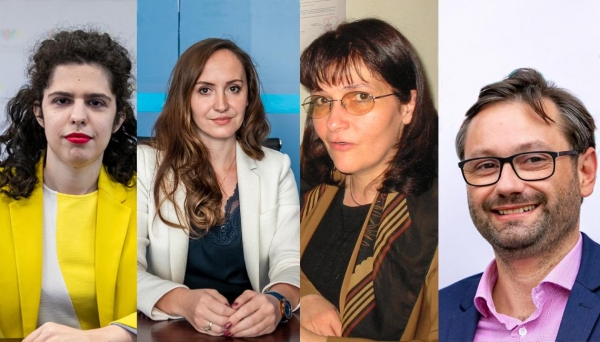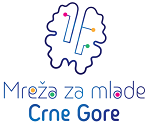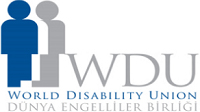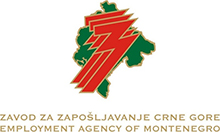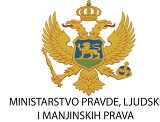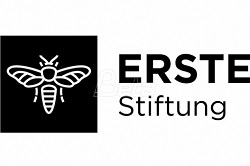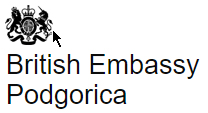Adopt Deinstitutionalization strategy to achieve more independent living of PWDs
Podgorica, PR press service – Adoption of Deinstitutionalization Strategy in Montenegro is necessary in order to enable persons with disabilities to live more independent, and transformation of big institutions into small and transfer of persons from institutions to institution cannot be considered as deinstitutionalization.
That are conclusion of the second panel Deinstitutionalization as precondition of independent living within the online conference, organized by the Association of Youth with Disabilities of Montenegro (AYDM) on the occasion of the European Independent Living Day 5th May and Europe Day 9th May.
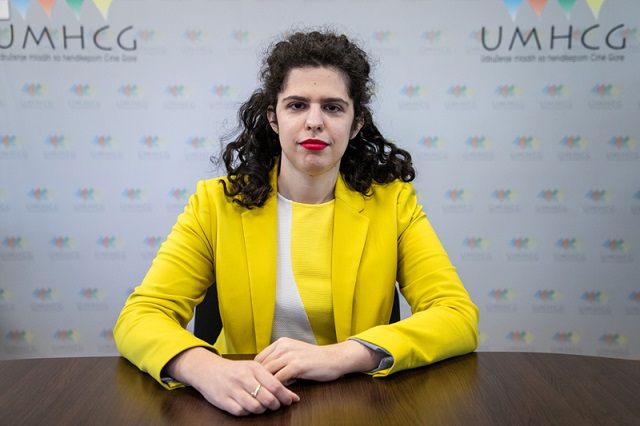
Program manager of AYDM, Anđela Radovanović, said that in the last ten years “we’ve maybe started to look at things in a different way“.
„Maybe we started to see people with disabilities as our family members, schoolmates, friends, colleagues… Maybe we started to understand that rights are a better option than charity… That disability is not a tragedy and a shame to hide… But all that is not enough, not yet“, said Radovanović.
According to her, services that exist in the system are limited, financially difficult to maintain, and are often provided by non-governmental organizations, or organizations of persons with disabilities, „“rather than by the competent institutions“.
„Many other services that are considered necessary by people with disabilities, such as guide and assistance dogs, accessible and available transportation are not recognized in the system. People with disabilities are offered one or a couple of services instead of pluralism of services, and the opening of new institutions is announced solemnly, with fanfare and cutting of red ribbons“, Radovanović stated.
She said that the transformation of large institutions into small institutions or the transfer of persons from one institution to another cannot be considered as deinstitutionalization.
„Socializing in day care centres for those up to 27, then going to day care centres for 27+, and so on to day care centres for the elderly or nursing homes, is not a way to allow people with disabilities to live in the community. A life, in which they will choose for themselves what, where, when, with whom and how they will do what they want. A life, where they will make choices, control them, be responsible for them, and even make mistakes“, Radovanović said.
But, as she said, closing institutions without a plan in terms of where and how to go on is not a solution.
„Sometimes, without support services for independent living: personal assistance, personal accompanying person, help at home, psychological support, transportation, legal information and support, empowering families for life with disabilities, it is easy to turn your own home into an institution. An institution where, among the four walls, perhaps, the immeasurable potentials of our society remain forever lost“, Radovanović stated.
She thinks that Deinstitutionalization strategy is the solution we need to ensure in order to make sure that every person with disability is given a chance „not to start their life with a sentence about what is the best institution for them to be placed in, but what is the kind of support they need to be given“.
„ So that we could talk about independence with clear and loud voice, with our heads up, not wondering when this independence will come“, Radovanović added.
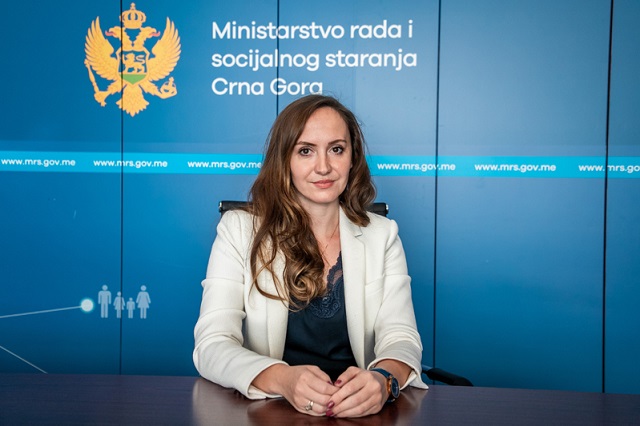
Independent advisor in the Directorate for social welfare and children protection in the Ministry of Labor and Social Welfare, Amela Jarović Orahovac, said that current results in the process of deinstitutionalization of children and youth reflects in reduction of number of children in residential institutions and development of family placement – foster care.
„The total number of children in institutional care (all institutions) decreased by 50% between 2010 and 2019, while it was 58% for the period 2010-2018. Children without parental care and children whose development is impeded by family circumstances are provided with accommodation in the Mladost Children’s Home in Bijela or with family foster care services“, Jarović Orahovac said.
She said that at the end of December 2019, 81 children were staying at the Mladost Children’s Home in Bijela, and 367 children were placed in foster care – the number of children in foster care with intensive or additional support was 4.
„The reform process reached its most complex phase where it is necessary to maintain the progress made and to seek sustainable solutions to ensure preventing of placements in residential institutions“, Jarović Orahovac said.
According to her, transition from institutional placement of beneficiaries to non-institutional forms of care is a long process, which primarily implies the development and sustainability of services in the social and child protection system.
„Social and child protection services should respond as far as possible to the needs of users with respect for human rights and dignity, be equally accessible to all users in the communities in which they live, enable the user to choose services and providers, whether public, non-governmental or private sector, and they should be provided with continuity and required duration“, Jarović Orahovac pointed out.
She said that for the process of deinstitutionalization it will not be sufficient to get only the efforts of a single department, there must be some intersectoral efforts in this field.
„Persons with disabilities should have accessibility of facilities and transport, accessibility of educational institutions, health services, increase of employability as one of the primary factors that would contribute to increasing the independence of persons with disabilities“, Jarović Orahovac mentioned.
She pointed out that displacement from institutions and allowing people with disabilities to live independently and with support in the community is a detailed and time-consuming process, and that the „prerequisite for the successful realization of this goal to increase the awareness of all citizens that every person, including a person with a disability has the ability and possibility to pursue a job or profession, no more or less than a person without disability“.
„Only when we reach this awareness we will be able to speak about equality and participation of all the people in the community “, Jarović Orahovac said.
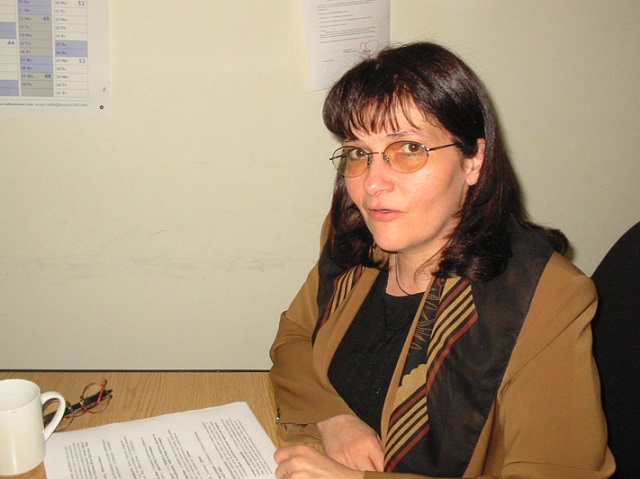
Representative of the European Network on Independent Living – ENIL, Kapka Panayotova, said that deinstitutionalization requires new and different legislation which will be, as she said, based on the principles from the UN CRPD.
„It means that all rules should be based on the assessments by PWDs, on the assessments for personal assistance, to access to all facilities in the environment, to accessibility and availability of all services in the community“, Panayotova said.
According to her, if all these is done and can be provided “then PWDs would have the choice to choose between placement in the institution or to go living independently“.
„On the basis of my experience from Bulgaria, I can say that deinstitutionalization was done with the main goal to close big institutions. It was necessary. That were big, old, ugly building and they were horrible, but just closure of these institutions doesn’t mean it is deinstitutionalization“, Panayotova pointed out.
Sha said that, based on her experience, there is ten to fifteen times more institutions than there were big ones in the past.
Panayotova said that small institutions require money and that their intention is not to enable independent living of PWDs. On the other side, personal assistance is usually necessary for independent living, but real personal assistance as empowerment mechanism, not the false one, which we usually see. She added that for persons with disabilities, support and empowerment are much more needed than protection, which can move us away from the community because „lack of support is thing that makes us fragile, not disability itself“.
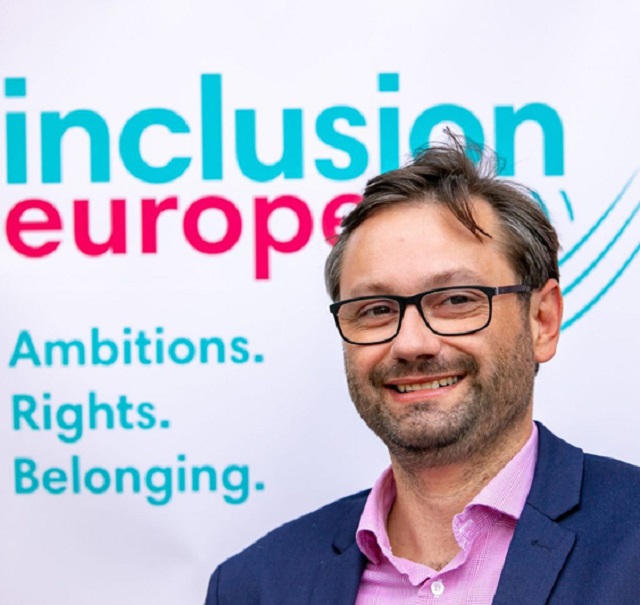
Director of Inclusion Europe, Milan Sverepa, highlighted three key elements for successful deinstitutionalization.
„The first one is to focus on social elements and relationships. Exactly the thing which represents segregation and closure in institutions. The work on deinstitutionalization is based on this – in investment in people, in their skills, independence and self-confidence“, Sverepa pointed out.
He highlighted that, when someone leaves the institution, that person is vulnerable because he/she does not have any social relationships.
„Another element which will lead to success of deinstitutionalization is prevention of new institutionalization. We have to work on skills for life in the community, on independence and inclusion, to prevent people being sent to institutions, and to enable that those who leave institutions could be independent“, Sverepa said.
He said that the third element which could contribute to success of deinstitutionalization focusing on „which goes beyond services“.
„All services provided in the community should be accessible for all. Under that we mean education, health protection etc“, Sverepa added.
He highlighted that it is of utmost importance to stop denial of rights of persons to decide on their own lives, „which means we should have good laws“.
The event was organized within the project “Communicating EU accession and EU assistance in Montenegro III”, financed by the EU, and implemented by Secretariat General of the Government of Montenegro, as a measure of the Action plan for 2020 of the Public Information Strategy on Montenegro’s Accession to the European Union.



More news
- THE AYDM CONDUCTED A RESEARCH ON THE ASSESSMENT OF COMPETENCIES AND EXISTING KNOWLEDGE OF PERSONS WITH PHYSICAL DISABILITIES IN THE FIELD OF DIGITAL MARKETING IN MONTENEGRO
- Portal Disability info i aktuelnosti
- AYDM ARE IMPLEMENTATING THE PROJECT DIGITAL MARKETING CAPACITY BUILDING - EMPOWERING PERSONS WITH PHYSICAL DISABILITIES FOR REMOTE WORK
- European Day on Independent Living marked in Montenegro: Right on Independent Living as Right to Freedom and Choice
- IN THIS ELECTION PROCESS, THE CONDITIONS FOR PEOPLE WITH DISABILITIES ARE NOT ADEQUATE TO THE CORRESPONDING EXTENT











